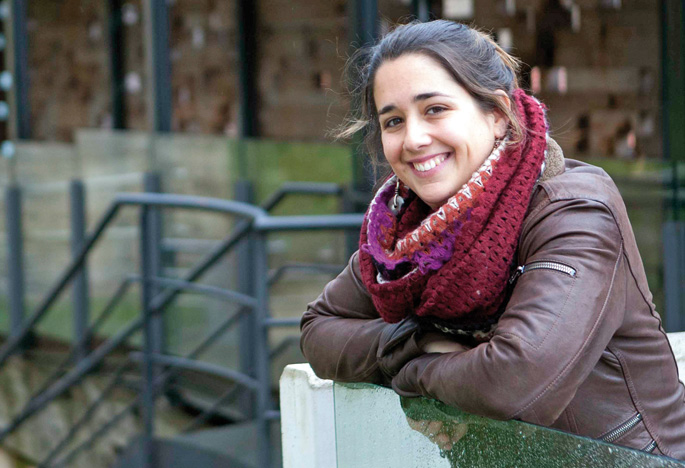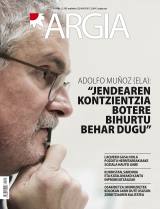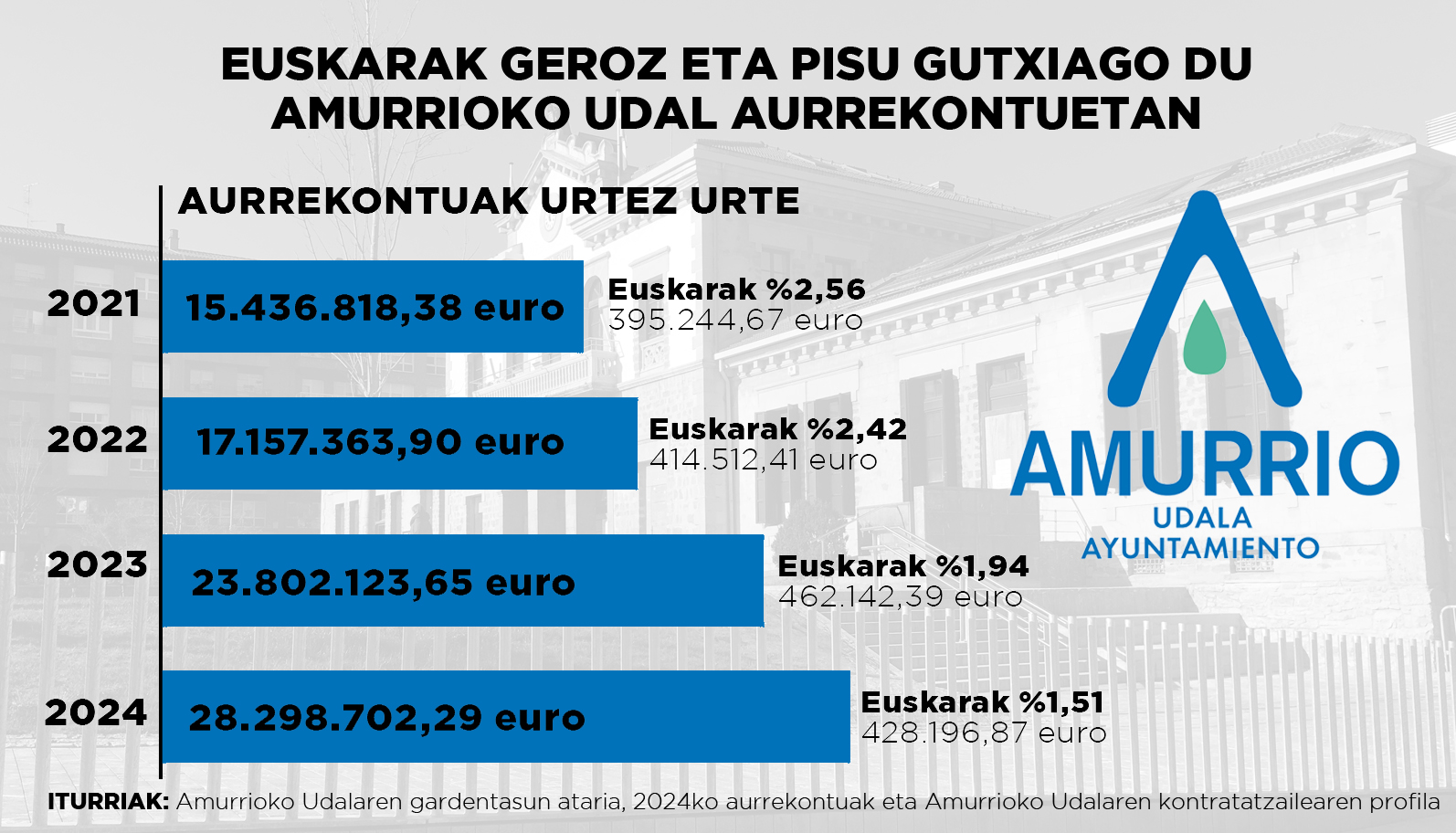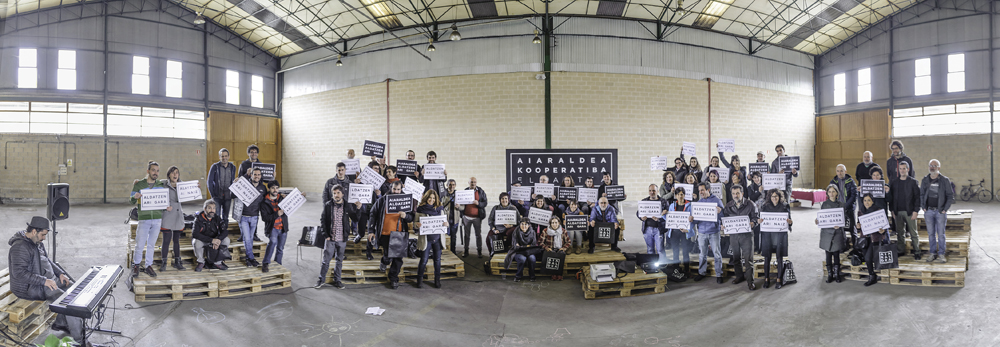If yes, in Vitoria you will find who to talk to in Basque
- Rikardo Arrangi Diaz de Heredia remembers that when he said he was Gasteiztarra and Euskaldun they asked him how he had cows and sheep. He could be no more than a peasant. Ane Pedruzo Redondo hasn't even known that moment. He knows that they will not always answer in Euskera, and that sometimes they will also get bad answers, but he is committed to making the first word in Euskera. The two, among many others, have counted their experiences with the Basque Country ahotsak.eus in the series of videos “Gasteizko euskararen ahotsak” that the project has produced. In the following lines excerpts from the interviews are collected.

Rikardo Arrangi Diaz de Heredia (1958), Euskera professor, writer and poet
“The problems, above all, I have them outside Vitoria-Gasteiz. In Vitoria we enter a store and most of the time it does not occur to me to start in Basque, or at least not so far. You do it if you have a militant day, but normally you don't.
When I go to San Sebastian, I think everyone will talk about Euskera and the biggest blows I've had in cities like Donostia. Go somewhere, speak in Basque and answer in Spanish or receive a negative answer. Once in summer I went into a bar, it's true that I was dressed in summer, and the bar started making me in English directly, and when I answered him in Basque, he was amazed.
It seems to you that everyone has to understand Euskera, and then you realize it's not. In Vitoria-Gasteiz I would not find it strange, but in a Donostia or in a Zarautz I find it uncomfortable.
Has it not happened to you that you are Gasteiztarra, that you are Euskaldun, that surprised you?
Yeah, yeah, or the people here think I'm not from Vitoria, or I'm not from Álava. As my first surname is Arrangi, ‘I thought you…’, I’m from Vitoria! The Ark Street! My parents are patateros, all surnames are Zarate's, etc. Many people, and especially outside Vitoria-Gasteiz, do a botanical and geological study when you say you are Gasteiztarra and Euskaldun, to see where this strange plant is, your parents, your grandmother, I don’t know what… I usually don’t answer these things. Are you Vitoria-Gasteiz? ‘Eta euskalduna?’ Yes. ‘And your mother…’, I don’t answer, I think it’s a bad taste. Do I ask you what your mother is, what your father is… about the things of the family?
Many people, outside Vitoria-Gasteiz, think that here the Basque thing is rare and there will be 20,000 Euskaldunes. Maybe there are more Basque in Vitoria than in your town. I get angry with people. It is true that many people live, and I do not know what the main language is, and that on the street you hear Arabic, Urdu or Castilian.
Was the attitude different before and now?
In other times, for example in the 1980s, speaking in Basque was very well dressed, in the Casco Viejo, in Kutxi Street… I think now there is also that trail.
Before, for example, I used to go with some friends, but I didn't like Kutxi Street very much, to speak in Basque, yes, but I liked more the music they put on Zapatería Street or Pravda at night. I realized that. When people knew you were Basque, I thought cows or sheep would come behind you. Excuse me, but I'm from Vitoria. I've seen cows, it's true that my parents were from the villages, but they lived here. Before, there were many people who joined Euskera and rurality. Cows?’ and I, what cow? Speaking in Basque does not make me baserritarra. Now there will be other kinds of prejudices, but that’s not.”
Ane Pedruzo Redondo (1985), Communications Officer, Oihaneder Euskararen Etxea
“I’ve been in stores and bars for a couple of years speaking the first word in Basque, at least I try. You have really nice surprises. Go to the bakery, speak the first word in Basque, and discover that your man from behind has also heard it and that she has also done it in Basque. It's an incredible joy. In the micro, but you're inciting. They also tell you ‘I don’t understand you’. Living in a hundred percent Basque is not easy, but it's getting easier.
Sometimes you don't want to do it, because you're tired or angry, and you don't want to get into one. In any case, joy is more generous than sadness.
There are also bad positions, but there are very few at present. I hear other rumours: ‘I’m sorry, I’d like’ or ‘I couldn’t learn’, or ‘How good, you do’. There are many such attitudes. Give joy and you can have a conversation like this: ‘Maybe not now, but little by little, don’t worry, the time will come’, ‘No, now I’m too adult’, ‘It’s never too late’. I might not go anywhere, but it's nice to see people think that way. That's why I say there's potentiality, because there's that kind of attitude. It's difficult, but it's not impossible, and it's getting easier.
For fear of the bad answer, we don't do it many times. If we do not, we will not know if we are going to receive a bad or good answer, we will not identify an Euskaldun who could be there. So, you have to do it! I'm not saying let's go with the sheriff's plate. It happened to me recently. I was going with a friend, and we had to ask a woman something on the street. We did it in Spanish because of its appearance. It was an absurd prejudice, and we have also worked on the subject, we have held a workshop of TELP... and that woman was Euskaldun! He taught us a lesson.
Nobody likes to get a bad answer, and what day they have and how they are, maybe it's not what they need most at that time, but well thought about -- the problem is not yours, it's yours. He doesn't know the language that's official here, he's losing another way of seeing the world, he's lost the opportunity to empathize with me, and I'm not going to enter the debate, because I don't think we're in a position to discuss it at the same level.
The other day I asked for in the tavern orange juice and the innkeeper said: ‘Zer?’ and I ‘la-ran-ja-zu-ku, la-ran-ja-zu-mo’, and he: ‘If you want I’ll do it in Chinese!’ You start to warm up and say, ‘but here you don’t speak Chinese, and in Basque yes, and I told you la-ran-ja (orange), forgive but that is understood. And you know what? Nothing has come out of me, nothing happens, thank you, goodbye’. How many bars are there in Vitoria? When you have a good day, you can do it. I think it’s worth it.”
“Izaskun Arrueren urratsen atzetik” liburua idatzi du Miel Anjel Elustondok. Azken hamarkadetan Gasteizen eta Araban euskararen bilakaera eta Ikastolen sorrera nolakoa izan zen aztertu du. Izaskun Arrue Arabako Ikastoletako “lehen andereñoa” izan... [+]
Mendialdean euskarararen zabalpena aztertu du Joseba Abaitua linguistikako doktoreak; muga oso garbia aurkitu du, euskararen eta erromantzearen artean.





















